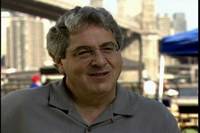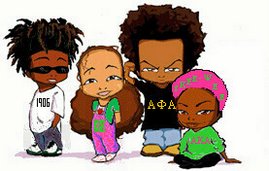
Only in New York can you run into the director of Caddyshack and Groundhog's Day, the writer of Ghostbusters Mr. Harold Ramis. Ladies and Gentlemen I give you my first celebrity interview.
What do you think of the various improv groups out there today as compared to the "Second City"?
I don't see much live improv or sketch comedy, but most of the groups working today employ techniques developed at Second City and/or one of its many offspring like ImprovOlympic. But beyond technique, the secret of successful improv (besides talent, timing, wit, insight, culture, compassion and intelligence) is the capacity to work collaboratively and supportively with a group. It's not like stand-up comedy. Del Close, one of the great improv mentors always said that if you focussed on making other people on stage look good, as opposed to always selfishly worrying about how you yourself were doing, then everybody looks good, even though the particular scene may be less than perfect. He thought it sent a subliminal message about cooperation to the audience that was an important complement to the entertainment value of the scene.
What are you working on now?
I just finished a film called The Ice Harvest with John Cusack, Billy Bob Thornton, Oliver Platt, Randy Quaid and Connie Neilsen. It's based on a novel by Scott Phillips, screenplay by Richard Russo (Pulitzer Prize winner for his novel Empire Falls) and Robert Benton (Oscar winner for his screenplays Kramer vs. Kramer and Places in the Heart.) It's a darkly funny, lurid, and violent film noir; great performances, a terrific look and I'm very proud of it.
What is your best memory of Caddyshack?
Caddyshack was a lot of fun to make. Almost too much fun. I had great partners who were also great friends, Doug Kenney and Brian Doyle-Murray; we all lived for three months in a hotel with the cast right on the golf course in Florida; we had the funniest people we knew in all the key roles and every day was an adventure in madness.
What made you stay at "Second City" rather than going to "SNL"?
I was asked to join the writing staff of SNL at the start of its second year, but I was already headwriter and a full-time performer on SCTV, and even though the show wasn't nearly as successful, I loved the cast-- Joe Flaherty, John Candy, Eugene Levy, Dave Thomas, Andrea Martin and Catherine O'Hara. We had total freedom to do whatever we wanted, and the atmosphere was considerably more "wholesome" than at SNL. At SNL writers had to fight to get pieces on the show which created lots of competition and tension. I didn't think it would do me any good to work there and I was already working on the screenplay of what would become Animal House, so TV in general just seemed like a stop along the way to something I'd always wanted to do-- make movies-- and even though I envied the mainstream success and visibility of SNL, I like it just fine where I was.
What do you think about the current state of comedy today?
I think it's hard to generalize about comedy. There's great stuff being done today in films, on TV and in the clubs. Chris Rock is just as funny and edgy as Richard Pryor was, shows like Curb Your Enthusiasm, The Office and Ali G are pushing the envelope in form and content, and new talent is developing constantly. Of course there's lots of crap too, but that's true in any creative medium; whether its theater, fiction, movies, TV, music, painting, etc., only about 10% of it is really worthy.
What is the question that most interviewers ask you that gets on your nerves?
It would be too easy to say "This question," so I won't. In fact, no one's ever asked me this before. What generally gets on my nerves in interviews (and I've done hundreds, probably over a thousand) is the short interview for local TV stations with the on-air personality who covers entertainment for them, which usually comes down to "tell me something funny that happened while youwere shooting" or "tell me something about a big star I can use on my five-minute segment on the 11 o'clock." What I like are longer interviews with thoughtful journalists or critics who actually want to talk about process, content, context, culture, history, religion, politics or anything other than, "I bet it's hilarious working with Billy Crystal. Tell me some of the funny things that happened on the set."

2 comments:
Great job Jazz. That's an awesome interview.
Post a Comment